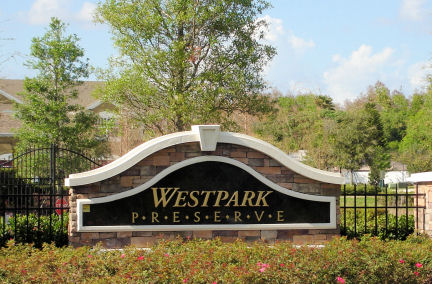

Westpark Preserve
March 17th 2009
Water water...
is not everywhere!
The Tampa bay region is in a 3 year period of drought that is slowly building in intensity, and straining resources as never before. The main reservoir for the region was improperly constructed and is now empty. Rivers are flowing at the slowest rate ever measured, and underground water is being tapped ever more deeply.
Our irrigation water is derived from the holding ponds around the property. But you may have noticed the levels of these waters have declined precipitously. Landarc and your board are monitoring the situation closely, but may have to make some cutbacks in the rate of consumption unless substantial rains come soon. The city of Tampa has already issued a no lawn sprinkling policy for the duration, and we may soon have to follow suit. This may mean the likelihood of brown lawns, which we may find to be disagreeable, but there is little else that can reasonably be done.
Should a drought situation persist over the years, we may have to consider a groundcover alternate to the grass we presently have. But by then many other things may change as well.
As good citizens, we should individually try to conserve as much water use as possible. Low flow showerheads and faucets, and more efficient toilets are good things to consider. Washing only the windshields, windows and mirrors of cars will help greatly. And reviewing our personal habits of water usage is the very essence of environmental stewardship.
Check out current news from the Hillsborough County Water Department
Water-wise Car
Washing
Sept. 2009
Taking your car to the local car wash instead of washing it at home might
seem like a guilty pleasure, but from an environmental perspective it is often
the better choice. When you wash your car in the driveway or street, contaminants
such as grease and brake dust (as well as the detergent itself) flow into
storm sewers, which discharge directly into our waterways. Car washes, on
the other hand, are required to drain their water into sanitary sewers (which
direct sewage to treatment facilities) or to filter and reuse it on-site.
Water efficiency is also a benefit of many commercial car washes. An analysis
by the Maryland Department of the Environment found that car washes use
approximately 50 to 75 gallons of water per car (assuming the water is
not being recycled); using the self-service bay consumes only 15 gallons.
A typical garden hose, on the other hand, which has an average flow rate
of seven gallons per minute, would exceed a car wash's water consumption
after two minutes compared with the self-service bay or seven minutes
compared with the automated wash if the hose were left running.
If you don't live near a car wash, here are some ways to clean your car
in an environmentally friendly way: